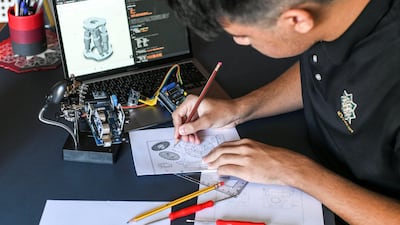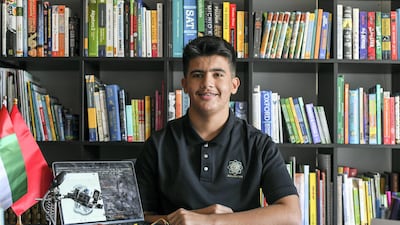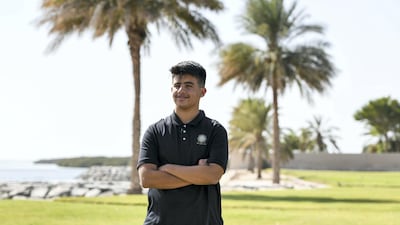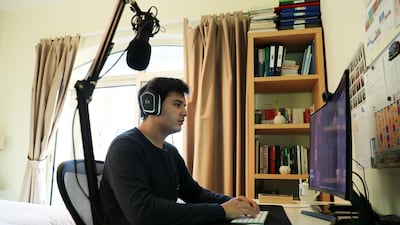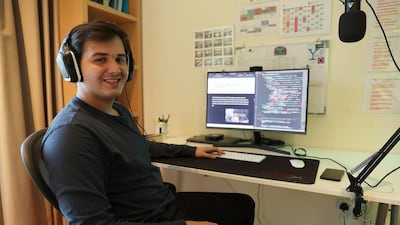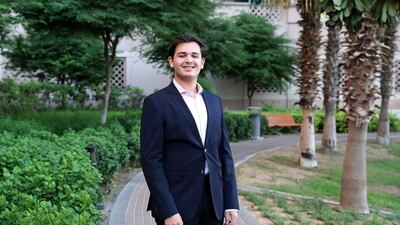A pair of enterprising UAE teenagers are aiming to build a fleet of cutting-edge robots and drones to catch out Covid-19 rule-breakers failing to wear masks in public places.
Louai Allani, 18, and Mohamed Yalouh, 15, are the co-founders of Waind, a pupil-led research and development project to create artificial intelligence-based solutions to combat the pandemic.
The duo have dedicated their free time outside of their school studies to drive forward the bold initiative in a bid to limit the spread of coronavirus.
Now they need crucial backing from universities and authorities to turn their dreams into a reality - as well as the support of another like-minded youngster with a passion for advancing technology.
Mr Allani and Mohamed have already made a 3D model of the robot but require additional help to produce the robots and carry out further experiments.
"We need support from universities as we require space and facilities for conducting experiments," said Mr Allani, a Tunisian 12th grader at Lycée Français International de Dubai.
"We also need help from universities to get permits for experiments like flying drones or robot simulations."
The pupils do not have a permit to fly drones and using aerial units is part of their plan should they get required approvals.
"We are in the middle of a pandemic and want to make the community safer and healthier," said Mr Allani.
"This was the best project for us to start with as we are working on solutions to the current pandemic and our invention could help decrease the number of cases."
Waind is currently developing robots that can detect people who are not wearing face coverings or complying with social distancing regulations.
The robots will be equipped with sterilising technology, while drones could be used for a variety of other purposes such as fire control and delivering first aid.
Police in Dubai and Sharjah deployed drones equipped with loudspeakers and cameras to ensure members of the public complied with safety measures in the early stages of the pandemic.
"We are hoping to to partner with the government to better the artificial intelligence technology and propose new solutions," said Mr Allani.

The school pupils are currently looking for another UAE-based pupil with a passion for technology to become a third founder-member.
The ambitious pair started Waind while studying remotely during the pandemic, in an effort to get youth involved in artificial intelligence-based projects.
Mohamed Yalouh, a Moroccan grade 11 pupil at The American Community School of Abu Dhabi, said they started work on the project outside of school hours roughly two months ago.
"We have conceptualised a robot that will have the technology to detect non-mask activity," said Mohamed.
"It uses sensors, trackers, machine learning and computer vision.
"We hope to get recognition and support from authorities who can help us put the technology in place."
Waind stands for water, air, and, land as the pupils intend to explore various elements.
The pupils want to first use the robots that will check for mask use and social distancing in community and residential areas, and then move to public transport and public areas.
"Inspired by some of the global challenges that we see today and our own experiences during the pandemic, we aim to build a research and development network of pupils worldwide to explore and develop new artificial intelligence innovations," said Mohamed.
Those interested in supporting the venture and finding out more information, can visit the Waind website.
